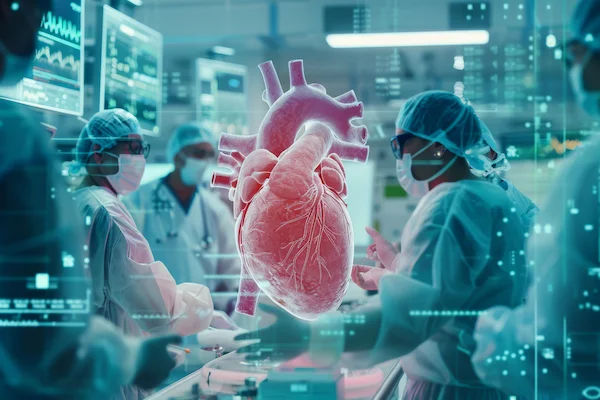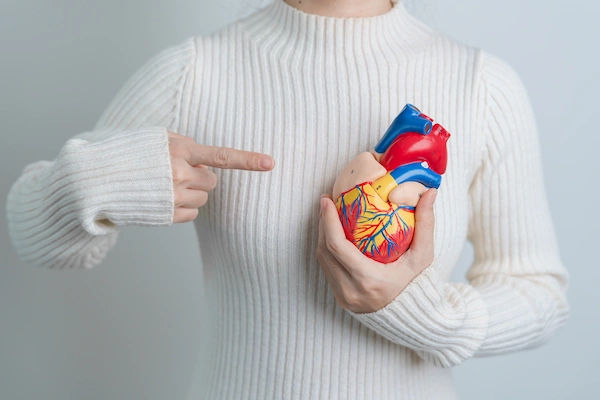- Male
- 22 Years
- 07/02/2025
I've been experiencing these heart palpitations and it's really concerning me. My heart also feels painful and I'm feeling quite shaky and weak. Can you tell me what might be causing this and what I should do?
Answered by 1 Apollo Doctors
Sir, the treatment for palpitations and chest pain due to weakness can vary depending on the underlying cause. However, for symptomatic relief, you can take Tab Metoprolol 25mg twice daily to help control your heart rate and reduce palpitations. Additionally, you can take Tab Aspirin 75mg once daily to help with chest pain. It is important to stay hydrated, rest, and avoid caffeine and stress. If symptoms persist or worsen, please seek medical attention promptly.
Dr. Mubarak Suggests...
Consult a Cardiologist
Answered 04/07/2025
0
0

More Cardiology Health Queries
View allI'm wondering if a blood pressure reading of 9354 is considered low? I've been feeling some weakness and dizziness at times, and I'm not sure if it's related. How would one diagnose low blood pressure?
Visit your doctor for evaluation and appropriate management
Answered by 1 Apollo Doctors
I'm experiencing this kind of strong pounding pulse throughout my body. It's not really fast, just really strong. I can even see it in my neck when I look in the mirror and I feel it in my fingers and hands when I touch something. I also notice a visible pulse in my stomach and when I'm lying down, my head kind of bobs up and down with my pulse. Right now, even as I'm sitting in bed with my laptop, the pulse is shaking my laptop. This began shortly after I had some issues with anxiety and possible heart problems, but I've been to the hospital multiple times and they've ruled out any heart issues. It often gets triggered after heavy meals and this has been happening for about a year now. What could be causing this?
A really strong, pounding pulse all over your body, even visible in the neck and stomach, can be a concerning symptom. Since heart issues have been ruled out, this may be related to anxiety. To help manage this symptom, you can try taking Propranolol (Inderal) 10-20mg as needed to help reduce the pounding pulse and physical symptoms of anxiety. It is important to consult with your doctor before starting any new medication.
Answered by 1 Apollo Doctors
Is a pulse rate of 55-65 normal? We've started my dad on Concor AM 5mg for the last couple of days, and now we're noticing his pulse rate is around that range, plus he's been experiencing some irregular heartbeats and mild chest pain. He's already dealing with hypertension and after a bout with COVID had palpitations and a pulse hitting 120, so he took Ivabid for a month, then switched to Dilzem CD 90mg for another month. We did notice his aortic valve is dilated at 4.3 cm. I'm really worried and wondering if we should continue with Concor, or could it further lower his pulse rate?
A pulse rate of 55-65 can be considered normal for some individuals, especially those who are physically fit. However, considering your father's history of hypertension, irregular heartbeat, chest pain, and previous cardiac medications, it is essential to monitor his condition closely. Concor AM 5mg is a combination of Bisoprolol and Amlodipine, which helps in controlling blood pressure and heart rate. Given his symptoms and medical history, it is crucial to consult with his healthcare provider to adjust the dosage or consider alternative medications. Continuing Concor may further decrease the pulse rate, so medical advice is necessary to ensure his safety and well-being.
Answered by 1 Apollo Doctors
Disclaimer: Answers on Apollo 247 are not intended to replace your doctor advice. Always seek help of a professional doctor in case of an medical emergency or ailment.





